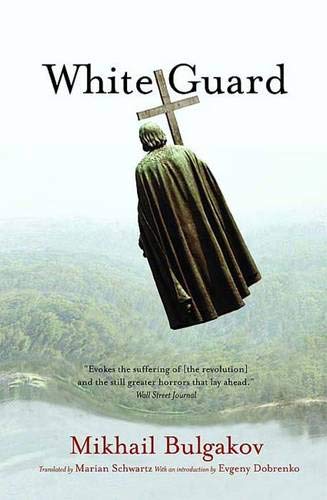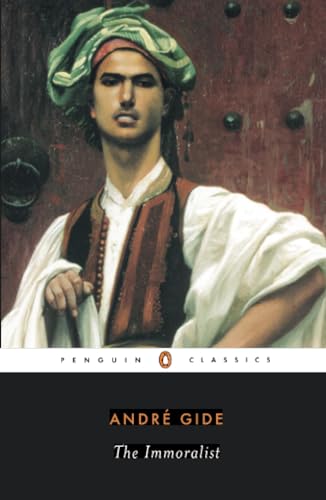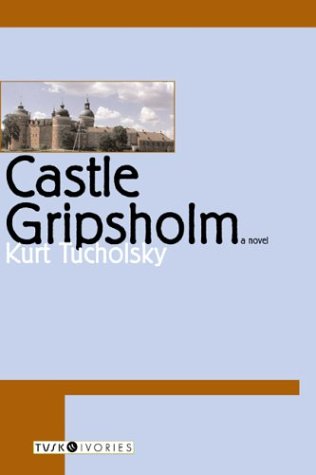Books Read in 2008 - Fiction
Explore a curated list of the best fiction books read in 2008. Discover top novels, must-reads, and hidden gems from this year's literary collection.




Book
Under the Volcano
by Malcolm Lowry
It is the Day of Death and the fiesta is in fullswing. Geoffrey Firmin, H.M. ex-consul, is drowning himself in liquor and mescal, while his ex-wife and half brother look on, powerless to help him. As the day wears on, it becomes apparent that Geoffrey must die.




Book
We
by Yevgeny Zamyatin
“[Zamyatin’s] intuitive grasp of the irrational side of totalitarianism— human sacrifice, cruelty as an end in itself—makes [We] superior to Huxley’s [Brave New World].”—George Orwell Translated by Natasha Randall • Foreword by Bruce Sterling Written in 1921, We is set in the One State, where all live for the collective good and individual freedom does not exist. The novel takes the form of the diary of mathematician D-503, who, to his shock, experiences the most disruptive emotion imaginable: love. At once satirical and sobering—and now available in a powerful new translation—We is both a rediscovered classic and a work of tremendous relevance to our own times.

Book
Tropic of Cancer
by Henry Miller
The account of a young writer and his friends in free-wheeling Paris.

Book
Philip K. Dick: Four Novels of the 1960s (LOA #173)
by Philip K. Dick
This Library of America volume brings together four of Dick's most original, mesmerizing, and surprising novels: "The Man in the High Castle, The Three Stigmata of Palmer Eldritch, Do Androids Dream of Electric Sheep?," and "Ubik."



Book
Darkness at Noon
by Arthur Koestler
An aging revolutionary is imprisoned and psychologically tortured by the Party to which he has dedicated his life. He recalls a career that embodies the ironies and betrayals of a totalitarian government.











Book
The Picture of Dorian Gray
by Oscar Wilde
The handsome appearance of dissolute young Dorian Gray remains unchanged while the features in his portrait become distorted as his degeneration progresses.

Book
Frankenstein
by Mary Shelley
The world’s most famous work of horror fiction: a devastating exploration of the limits of human creativity. Nominated as one of America’s best-loved novels by PBS’s The Great American Read Mary Shelley's timeless gothic novel presents the epic battle between man and monster at its greatest literary pitch. In trying to create life, the young student Victor Frankenstein unleashes forces beyond his control, setting into motion a long and tragic chain of events that brings Victor to the very brink of madness. How he tries to destroy his creation, as it destroys everything Victor loves, is a powerful story of love, friendship, scientific hubris, and horror. Based on the third edition of 1831, this Penguin Classics edition, with an introduction and notes by Maurice Hindle, contains all the revisions Mary Shelley made to her story, as well as her 1831 introduction and Percy Bysshe Shelley’s preface to the first edition. It also includes as appendices a select collation of the texts of 1818 and 1831 together with "A Fragment" by Lord Byron and Dr John Polidori’s "The Vampyre: A Tale." For more than seventy years, Penguin has been the leading publisher of classic literature in the English-speaking world. With more than 1,700 titles, Penguin Classics represents a global bookshelf of the best works throughout history and across genres and disciplines. Readers trust the series to provide authoritative texts enhanced by introductions and notes by distinguished scholars and contemporary authors, as well as up-to-date translations by award-winning translators.


Book
Claudius the God
by Robert Graves
A modern classic of historical fiction written in the form of Claudius's autobiography. Claudius the God is the second part of Robert Graves's two-part account of the life of Tiberius Claudius, "the cripple, the stammerer, the fool of the family" who became Emperor of Rome in spite of himself in 41 A.D. With the same crystalline brilliance that characterizes its classic antecedent, Claudius the God evokes the vitality, splendor, and decadence of Imperial Rome at the beginning of its decline. It is not only a superb re-creation of a colorful moment in history but, through the eyes of the bemused and wry emperor, a compelling and ironic account of human nature as well.
